Indiana Chemical and Laws/Rules/Ethics 30 PDH Discount Package 2
Courses in this Package
Principles of Water Treatment (H03-002)
Reactor Water Chemistry (H03-001)
Building Field Capabilities to Respond to Drinking Water Contamination (H03-009)
Calculation of Gas Density and Viscosity (H02-011)
Chemigation - Backflow Prevention (M01-005)
An Introduction to Makeup Water for Industrial Water Systems (H03-006)
An Introduction to Water Desalination (H04-002)
An Introduction to Pretreatment Considerations for Water Desalination (H02-006)
An Introduction to Domestic Water Treatment (C02-054)
An Introduction to Chemical Cleaning of Industrial Water Systems (H03-003)
Microbiological and Corrosion Control in Cooling Water Systems (H02-007)
Engineering Laws, Rules and Ethics for Indiana Professional Engineers (IN2-005)
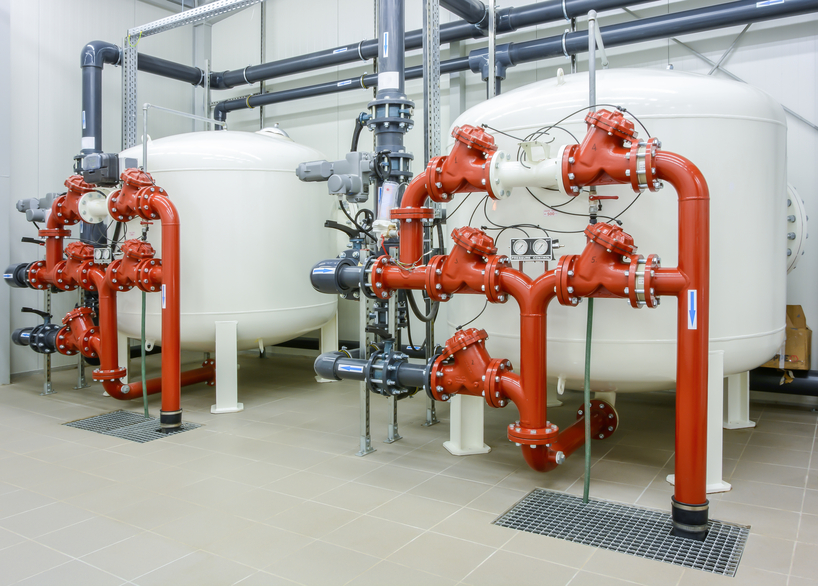
This online engineering PDH course addresses the principles of ion exchange in the context of water purity. It also discusses typical water treatment methods and the basis for these methods.
Water treatment is necessary to remove the impurities that are contained in water as found in nature. Control or elimination of these impurities is necessary to combat corrosion, scale formation, and fouling of heat transfer surfaces throughout facility support systems.
This 3 PDH online course is applicable to chemical and environmental engineers, design and construction personnel, technical staff and facility operators who are interested in gaining a better understanding of the principles of water treatment.
This PE continuing education course is intended to provide you with the following specific knowledge and skills:
- Water treatment processes
- Dissolved gases
- Suspended solids
- pH control
- Water purity
In this professional engineering CEU course, you need to review Module 4, "Principles of Water Treatment" of the Department of Energy Publication DOE-HDBK-1015/1-93, "Chemistry".
Upon successful completion of the quiz, print your Certificate of Completion instantly. (Note: if you are paying by check or money order, you will be able to print it after we receive your payment.) For your convenience, we will also email it to you. Please note that you can log in to your account at any time to access and print your Certificate of Completion.
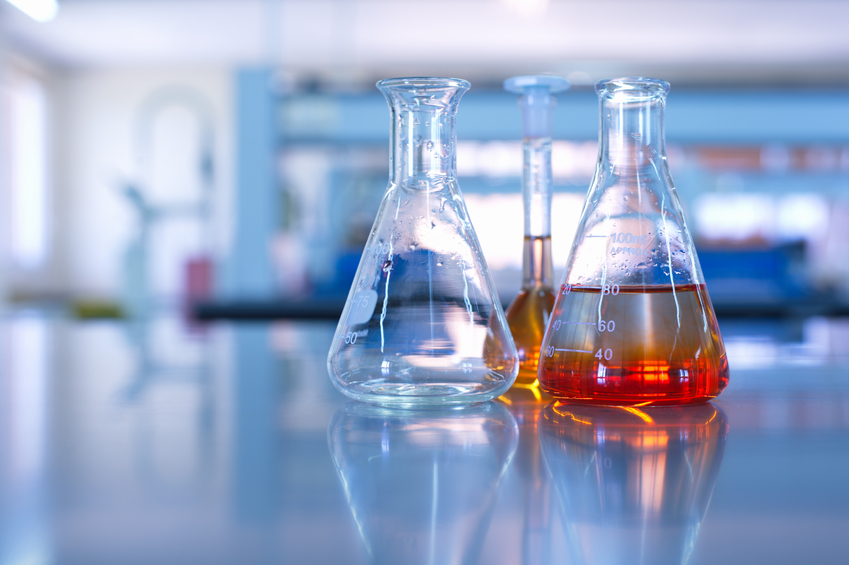
This online engineering PDH course describes the chemical measures taken to retard the corrosion often found in water systems. It also addresses the consequences of radioactivity on facility cooling water systems.
Radiation synthesis is a process that takes place in the reactor coolant system. This phenomenon is limited to the reactor coolant system because of the high flux (radiation) levels that exist in the core region and further complicate chemistry control of the reactor plant.
This 3 PDH online course is applicable to chemical engineers, design and construction personnel, technical staff and facility operators who are interested in gaining a better understanding of the reactor water chemistry.
This PE continuing education course is intended to provide you with the following specific knowledge and skills:
- Understanding water chemistry parameters
- Understanding the effects of radiation on water chemistry
In this professional engineering CEU course, you need to review Module 3, "Reactor Water Chemistry" of the Department of Energy Publication DOE-HDBK-1015/1-93, "Chemistry".
Upon successful completion of the quiz, print your Certificate of Completion instantly. (Note: if you are paying by check or money order, you will be able to print it after we receive your payment.) For your convenience, we will also email it to you. Please note that you can log in to your account at any time to access and print your Certificate of Completion.

This online engineering PDH course provides guidance on building field capabilities in order to respond to the contamination of drinking water. The course also provides planning and implementation guidance, templates, customizable report forms, and other documentation for Sampling and Analysis (S&A) activities.
When performed in response to possible or credible drinking water contamination, the goal of Sampling and Analysis (S&A) is to confirm or rule out contamination through field and laboratory testing. It is one of the earliest utility-led activities initiated when the utility has activated its drinking water contamination response plan and continues throughout remediation and recovery if contamination is confirmed.
This 3 PDH online course is intended for chemical and environmental engineers as well as others who are interested in learning more about building field capabilities in order to respond to the contamination of drinking water.
This PE continuing education course is intended to provide you with the following specific knowledge and skills:
- Familiarizing with planning and documentation for visual site hazard assessment, sample collection, and sample packaging and shipping
- Familiarizing with planning and documentation for site safety screening, rapid field testing, and hazardous materials packaging and shipping
- Understanding the staffing requirements to perform basic and advanced field activities
- Taking into consideration field response health and safety
- Familiarizing with quality assurance and quality control
- Understanding emergency response procedures
- Familiarizing with the considerations for preparation, placement, and contents of emergency response sampling and analysis kits
Upon successful completion of the quiz, print your Certificate of Completion instantly. (Note: if you are paying by check or money order, you will be able to print it after we receive your payment.) For your convenience, we will also email it to you. Please note that you can log in to your account at any time to access and print your Certificate of Completion.

This engineering online PDH course contains a discussion of, and an example calculation of, the density and viscosity of a specified gas at a given temperature and pressure. In this course, the Redlich Kwong equation will be used for calculation of the compressibility factor of a gas. The Sutherland formula will be discussed and used in example calculations. Another method for calculating the viscosity of air at a specified temperature and pressure will also be presented and discussed.
The density and/or viscosity of a gas is often needed for some other calculation, such as pipe flow or heat exchanger calculations. If the gas temperature is high relative to its critical temperature and the gas pressure is low relative to its critical pressure, then it can be treated as an ideal gas and its density can be calculated at a specified temperature and pressure using the ideal gas law. If the density of a gas is needed at a temperature and pressure at which it cannot be treated as an ideal gas law, however, then the compressibility factor of the gas must be calculated and used in calculating its density. The Sutherland formula can be used to calculate the viscosity of a gas at a specified temperature and pressure if the Sutherland constants are available for the gas.
This 2 PDH online course is intended for chemical, mechanical and environmental engineers. After completing this course, you will have knowledge about methods for calculating the density and viscosity of a gas at specified temperature and pressure.
This PE continuing education course is intended to provide you with the following specific knowledge and skills:
- Ability to calculate the density of a gas of known molecular weight at a specified temperature and pressure at which the gas can be treated as an ideal gas
- Ability to calculate the compressibility factor for a gas at a specified temperature and pressure, using the Redlich-Kwong equation, if the molecular weight, critical temperature and critical pressure of the gas are known.
- Ability to calculate the density of a gas at a specified temperature and pressure for which the gas cannot be treated as an ideal gas, if the molecular weight, critical temperature and critical pressure of the gas are known.
- Ability to calculate the viscosity of a gas at a specified temperature if the Sutherland constant for the gas is known and the viscosity of the gas at a suitable reference temperature is known.
- Ability to calculate the viscosity of air at specified air temperature and pressure.
- Ability to make all of the calculations described in these learning objectives using either U.S. or S.I. units.
In this professional engineering CEU course, you need to review the course document titled, “Calculation of Gas Density and Viscosity”. In addition, you need to review the Excel spreadsheet titled, "Real Gas Density Calculators_US or SI units".
Real Gas Density Calculators_US or SI units (43 KB)
Once you complete your course review, you need to take a multiple-choice quiz consisting of fifteen (15) questions to earn 2 PDH credits. The quiz will be based on both documents.
Upon successful completion of the quiz, print your Certificate of Completion instantly. (Note: if you are paying by check or money order, you will be able to print it after we receive your payment.) For your convenience, we will also email it to you. Please note that you can log in to your account at any time to access and print your Certificate of Completion.
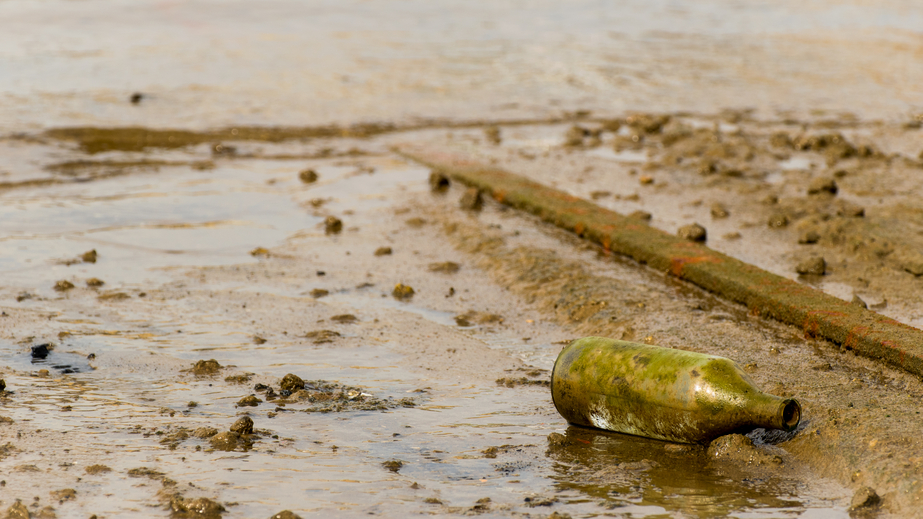
This online engineering PDH course describes pesticide label requirements for Chemigation, Chemigation system operation and calibration and Chemigation system safety.
Chemigation, or the addition of chemicals to irrigation water, has probably been around for as long as both irrigation and chemicals have been used in agriculture. Chemigation became more widely used in the 1970's with the adoption of center pivot irrigation systems in the Midwest. Backflow prevention is necessary to prevent pesticide contamination of surface water supplies as well as ground water.
This 1 PDH online course is applicable to mechanical engineers, civil engineers, chemical engineers and environmental engineers who are interested in learning more about chemigation in irrigation water.
This PE continuing education course is intended to provide you with the following specific knowledge and skills:
- Pesticide labeling requirements for chemigation
- Alternative devices that also comply with labeling
- Maintenance, calibration and safety of chemigation
In this professional engineering CEU course, you will need to review the material contained in Grower Training Manual for Backflow Prevention in Chemigation of Pesticides, Revised 3/3/04.
Upon successful completion of the quiz, print your Certificate of Completion instantly. (Note: if you are paying by check or money order, you will be able to print it after we receive your payment.) For your convenience, we will also email it to you. Please note that you can log in to your account at any time to access and print your Certificate of Completion.
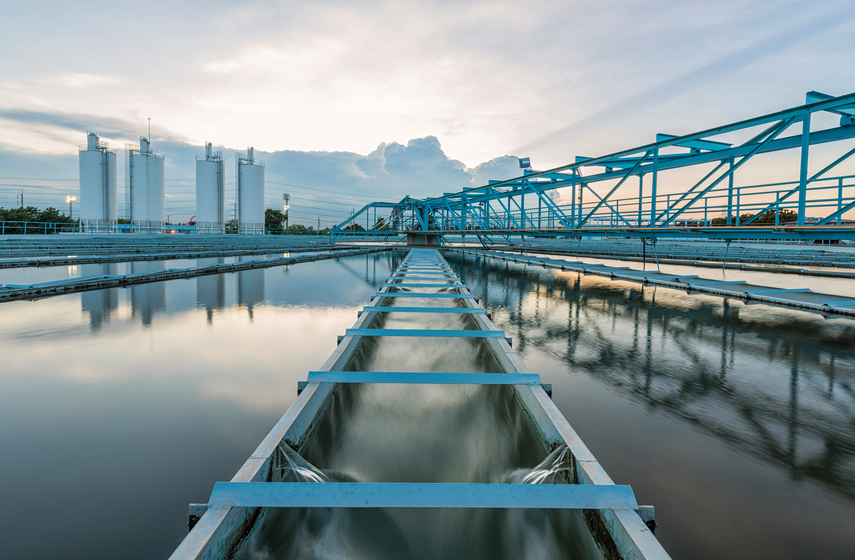
This online engineering PDH course provides an introduction to the techniques and methods for treating makeup water used in industrial water systems.
Many installations use fresh water and, often, potable water. Makeup water, often referred to as "makeup," is fresh water that is added to an industrial water system to replace water lost by blowdown, evaporation, wind drift, leaks, steam, humidification, or withdrawal from these systems. The usual source of makeup water is the installation's potable water supply. This source is water that has been conditioned and is usually of a very uniform quality from day to day. Other sources of makeup water could include groundwater obtained from shallow or deep wells, or surface water from streams or holding ponds. These sources are not treated to the extent that the potable water source is treated. Still another source is reuse water (i.e., water that is "used" and reclaimed and not rated as potable).
This 3 PDH online course is intended for mechanical engineers, civil engineers and other design and construction professionals seeking an introduction to makeup water and makeup water treatment for industrial water systems.
This PE continuing education course is intended to provide you with the following specific knowledge and skills:
-
Learning about different sources of makeup water
-
Understanding the reasons for treating makeup water
-
Knowing the criteria for treating makeup water for high temperature hot water systems
-
Learning about the methods for the removal or reduction of calcium and magnesium impurities from makeup water
-
Understanding how aeration is employed to remove dissolved iron
-
Understanding how to remove dissolved gases such as carbon dioxide, hydrogen sulfide and methane
In this professional engineering CEU course, you need to review the course document titled, "An Introduction to Makeup Water for Industrial Water Systems".
Upon successful completion of the quiz, print your Certificate of Completion instantly. (Note: if you are paying by check or money order, you will be able to print it after we receive your payment.) For your convenience, we will also email it to you. Please note that you can log in to your account at any time to access and print your Certificate of Completion.
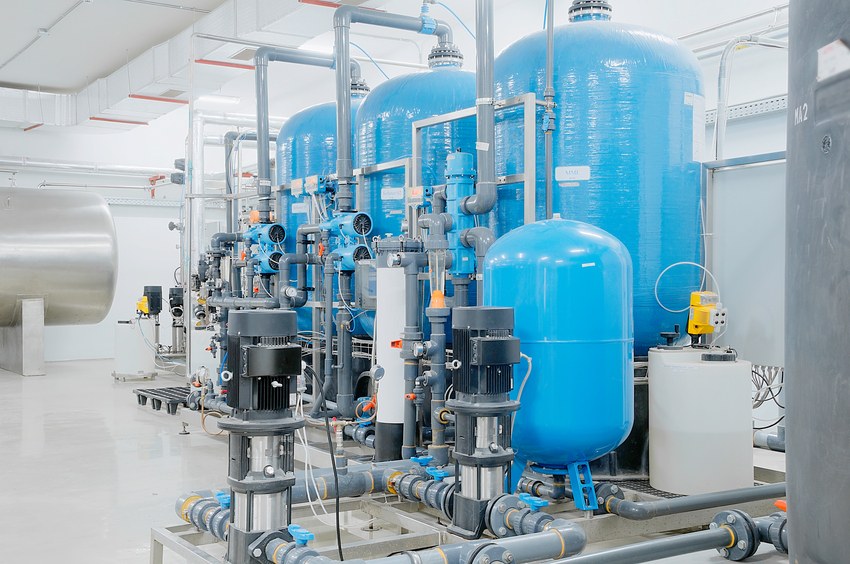
This online engineering PDH course will introduce you to water desalination technologies, processes and methods. You will learn the importance of site and water source selection. You will be introduced to an approach for selecting the appropriate desalination technology and process. You will learn about distillation/condensation techniques, membrane techniques and ion exchange techniques. You will find out how to develop process concepts, evaluate their utility, and move forward into preliminary design for projects and sites where water desalination is an operational requirement.
This 4 PDH online course is intended for engineers and other design and construction professionals interested in gaining an understanding of the technologies, processes and techniques for treating saline water, such as from the sea, to provide potable or suitable process water to meet the operational requirements of facilities and activities.
This PE continuing education course is intended to provide you with the following specific knowledge and skills:
- Learning about water storage and system modularization
- Learning about the typical desalination flowsheet
- Learning about typical reverse osmosis desalination processes
- Learning about cellulose acetate and polyaromatic amide membranes and their use in membrane desalination processes
- Learning about electrodialysis reversal desalination technology
- Learning the importance of energy conservation and efficiency when evaluating desalination processes
- Learning about high temperature distillation/condensation techniques
- Learning how multiple effect evaporation units are applied
- Learning the characteristics of multistage flash-evaporation units
- Learning about low-temperature distillation processes and how to apply them
- Learning when to use vapor compression techniques in water desalination
- Learning about applications of a multistage flash distillation facility
- Learning about the importance of waste heat recovery evaporation process
- Learning the fundamentals of the vapor-compression vertical-tube distillation system
- Learning the principles of electrodialysis desalination
In this professional engineering CEU course, you need to review the course document titled, "An Introduction to Water Desalination".
Upon successful completion of the quiz, print your Certificate of Completion instantly. (Note: if you are paying by check or money order, you will be able to print it after we receive your payment.) For your convenience, we will also email it to you. Please note that you can log in to your account at any time to access and print your Certificate of Completion.

This online engineering PDH course will introduce you to pretreatment techniques, such as solids removal, chemical treatment, filtration, coagulation, pH adjustment, scale inhibition, degasification, deaeration, disinfection and ultraviolet irradiation, at desalination plants.
Water desalination systems may employ different technologies depending on a variety of technical and economic factors. To one degree or another, these technologies may require pretreatment of the feed water stream in order to produce potable water that is healthy and has a pleasant taste.
This 2 PDH online course is intended for mechanical engineers, civil engineers, electrical engineers and other design and construction professionals wanting an introduction to source water pretreatment considerations for water desalination plants. After completion of this course you will be prepared for advanced learning about water desalination to prepare you for desalination project planning and design.
This PE continuing education course is intended to provide you with the following specific knowledge and skills:
- Understanding the principle technologies of water desalination
- Learning about the need for the pretreatment of source water at desalination plants
- Learning about the techniques for solids removal
- Learning about chemical pretreatment processes
- Learning about filtration and coagulation techniques
- Learning about the methods for scale inhibition
- Learning about disinfection using ultraviolet irradiation
In this professional engineering CEU course, you need to review the course document titled, "An Introduction to Pretreatment Considerations for Water Desalination".
Upon successful completion of the quiz, print your Certificate of Completion instantly. (Note: if you are paying by check or money order, you will be able to print it after we receive your payment.) For your convenience, we will also email it to you. Please note that you can log in to your account at any time to access and print your Certificate of Completion.

This online engineering PDH course provides an introduction to domestic water treatment. It includes basic information on most of the common water treatment processes for treating domestic water supplies to meet regulatory and best practices requirements.
Treatment consists of adding and/or removing substances from water so as to bring about a desired change in quality. In general, treatment is provided to protect public health or to improve the acceptability (aesthetic quality) of the finished product.
This 2 PDH online course is intended for civil and environmental engineers and other design and construction professionals seeking an introduction to domestic water treatment.
This PE continuing education course is intended to provide you with the following specific knowledge and skills:
- Learning about the methods of water treatment at the source
- Learning about coagulation and flocculation treatment
- Understanding the fundamentals of sedimentation basins and clarifiers
- Learning about disinfection issues
- Understanding the importance of corrosion and scaling control
- Knowing how to control iron and manganese
- Learning about ion exchange processes
In this professional engineering CEU course, you need to review the course document titled, "An Introduction to Domestic Water Treatment".
Upon successful completion of the quiz, print your Certificate of Completion instantly. (Note: if you are paying by check or money order, you will be able to print it after we receive your payment.) For your convenience, we will also email it to you. Please note that you can log in to your account at any time to access and print your Certificate of Completion.

This online engineering PDH course will introduce you to methods for cleaning industrial water systems with chemicals. You will learn about pre-operational cleaning which is performed to prepare water-contacted metal surfaces to receive chemical treatment to provide protection from scale, corrosion and microbiological growth. You will also learn about remedial cleaning to restore water systems that have been fouled with scale, corrosion products and microbiological growth due to inadequate or ineffective water treatment. Examples of industrial water systems for which chemical cleaning are applicable are boilers, heat exchangers, cooling towers, and chillers.
Maintenance of an effective water treatment program is essential to minimize scale and corrosion problems in industrial water systems; however, scale and deposits will often form and require remedial cleaning. If not removed, these scale and water-caused deposits may impact the safety of operations personnel, interfere with heat transfer, and cause excessive damage to, or destruction of, the water-using equipment.
This 3 PDH online course is intended for industrial, chemical and mechanical engineers, as well as, maintenance personnel and construction professionals interested in learning about the use of chemicals for cleaning industrial water systems and equipment such as boilers, heat exchangers, cooling towers and chillers.
This PE continuing education course is intended to provide you with the following specific knowledge and skills:
- Learning about pre-operational cleaning of new industrial water-using systems and equipment
- Learning about remedial cleaning of industrial water systems and equipment to restore them to optimal operating condition
- Learning about chemical cleaning methods that have largely superseded mechanical cleaning methods
- Learning about chemicals used for chemical treatment of industrial water systems
- Learning about the use of hydrochloric acid to remove carbonates scale with lesser amounts of phosphates, sulfates and silicates
- Learning about hydrochloric acid's limitations where stainless or galvanized steel is part of the system
- Learning about the use of sulfamic acid to remove scale from metal surfaces
- Learning about the importance of isolating equipment to be cleaned from other parts of the system using valves, rubber blankets, wooden bulkheads with seals, inflatable nylon or rubber bags, rubber sponge-covered plugs, or blind flanges and steel plates with rubber seals
- Learning about the recirculating cleaning process for boilers
- Learning about a circulating method for descaling smaller equipment that does not require heating
- Learning about the fill and soak method of chemical cleaning
In this professional engineering CEU course, you need to review the course document titled, "An Introduction to Chemical Cleaning of Industrial Water Systems".
Upon successful completion of the quiz, print your Certificate of Completion instantly. (Note: if you are paying by check or money order, you will be able to print it after we receive your payment.) For your convenience, we will also email it to you. Please note that you can log in to your account at any time to access and print your Certificate of Completion.
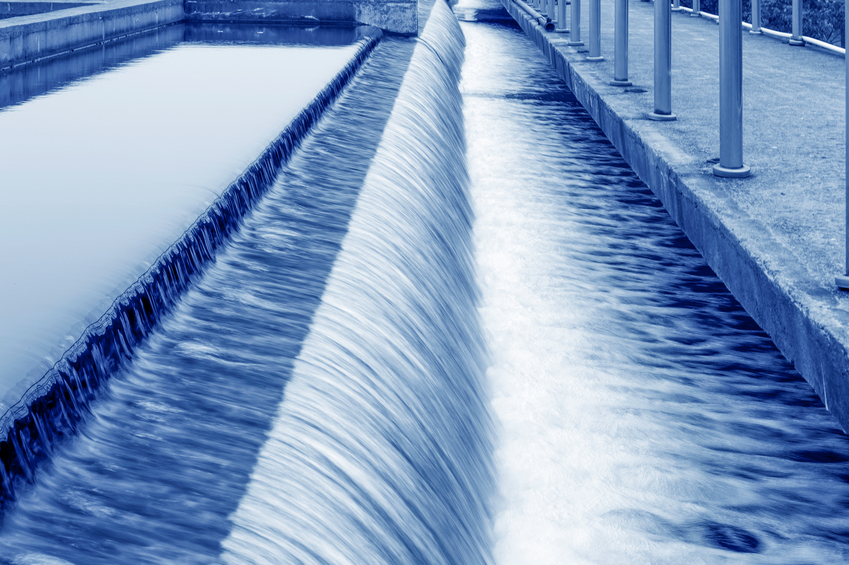
This online engineering PDH course provides an introduction to the design, construction and process control considerations for microbiological and corrosion control in cooling water systems.
Microbiological organisms are composed of three classes: algae, bacteria, and fungus. Large biological organisms such as clams, snails, mussels, or similar species are referred to as macrobiological organisms. The presence of any biological growth can be detrimental to cooling tower operations. Problems include fouling, corrosion, and loss of efficiency. These problems can lead to downtime, higher operating cost, and even premature replacement of equipment. Additionally, some bacteria are pathogenic and can pose a risk to human life. To alleviate these problems, proper implementation of microbiological and corrosion control measures in cooling water systems is imperative.
This 2 PDH online course is intended for civil, environmental and sanitary engineers as well as other design and construction professionals interested in learning about microbiological and corrosion control in cooling
This PE continuing education course is intended to provide you with the following specific knowledge and skills:
- Learning about site specific monitoring programs
- Understanding the fundamental requirements for extraction wells
- Knowing how frequently extraction wells should be monitored
- Understanding the importance of balancing techniques for multiple extraction wells
- Learning about perimeter LFG migration control
- Learning how to address leachate blockage issues at extraction wells
- Understanding the importance of monitoring conditions that may lead to landfill fires
- Learning how to employ LFG monitoring probes
In this professional engineering CEU course, you need to review the document titled, “Microbiological and Corrosion Control in Cooling Water Systems”.
Once you complete your course review, you need to take a multiple-choice quiz consisting of fifteen (15) questions to earn 3 PDH credits. The quiz will be based on the entire document.
Upon successful completion of the quiz, print your Certificate of Completion instantly. (Note: if you are paying by check or money order, you will be able to print it after we receive your payment.) For your convenience, we will also email it to you. Please note that you can log in to your account at any time to access and print your Certificate of Completion.

This online engineering PDH course presents the laws and rules of ethics and professional responsibility governing the practice of engineering in the State of Indiana. Excerpts from the Indiana Code (Title 25, Article 31) and the Indiana Administrative Code (Title 864) including licensing renewal, proper use of the engineer’s seal, continuing education requirements and other pertinent regulatory provisions are presented in this course.
Since engineers are faced with frequent moral and ethical dilemmas while practicing their engineering profession, this course will provide you with moral and ethical guidance in your decision making process. Most importantly, it will provide you with insight on how to conduct, respect and protect your engineering practice with the utmost professionalism.
This 2 PDH online course is applicable to Professional Engineers licensed in the State of Indiana and who are required to demonstrate continuing professional competency in engineering laws, rules and ethics as a condition of their license renewal. For each renewal period, every licensee must complete thirty (30) professional development hours, at least one (1) of which must be relative to the Indiana Laws and Rules, and at least one (1) of which must be relative to the rules of professional responsibility, conduct and ethics.
This PE continuing education engineering course is intended to provide you with the following specific knowledge and skills:
- Familiarizing with the laws and rules regulating the practice of engineering in the State of Indiana
- Understanding the license renewal process, continuing education requirements, proper use of seal and other pertinent provisions
- Understanding the role of the Indiana Board and its disciplinary authority
- Learning about engineering ethics and the rules of professional conduct and responsibility
Upon successful completion of the quiz, print your Certificate of Completion instantly. (Note: if you are paying by check or money order, you will be able to print it after we receive your payment.) For your convenience, we will also email it to you. Please note that you can log in to your account at any time to access and print your Certificate of Completion.